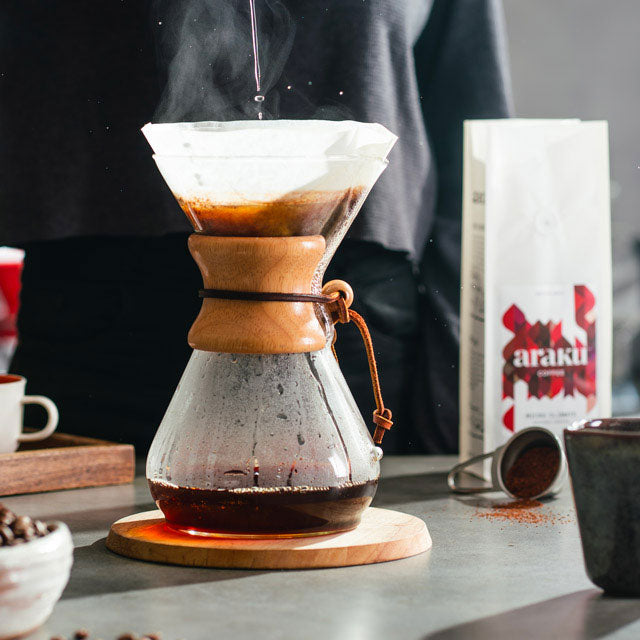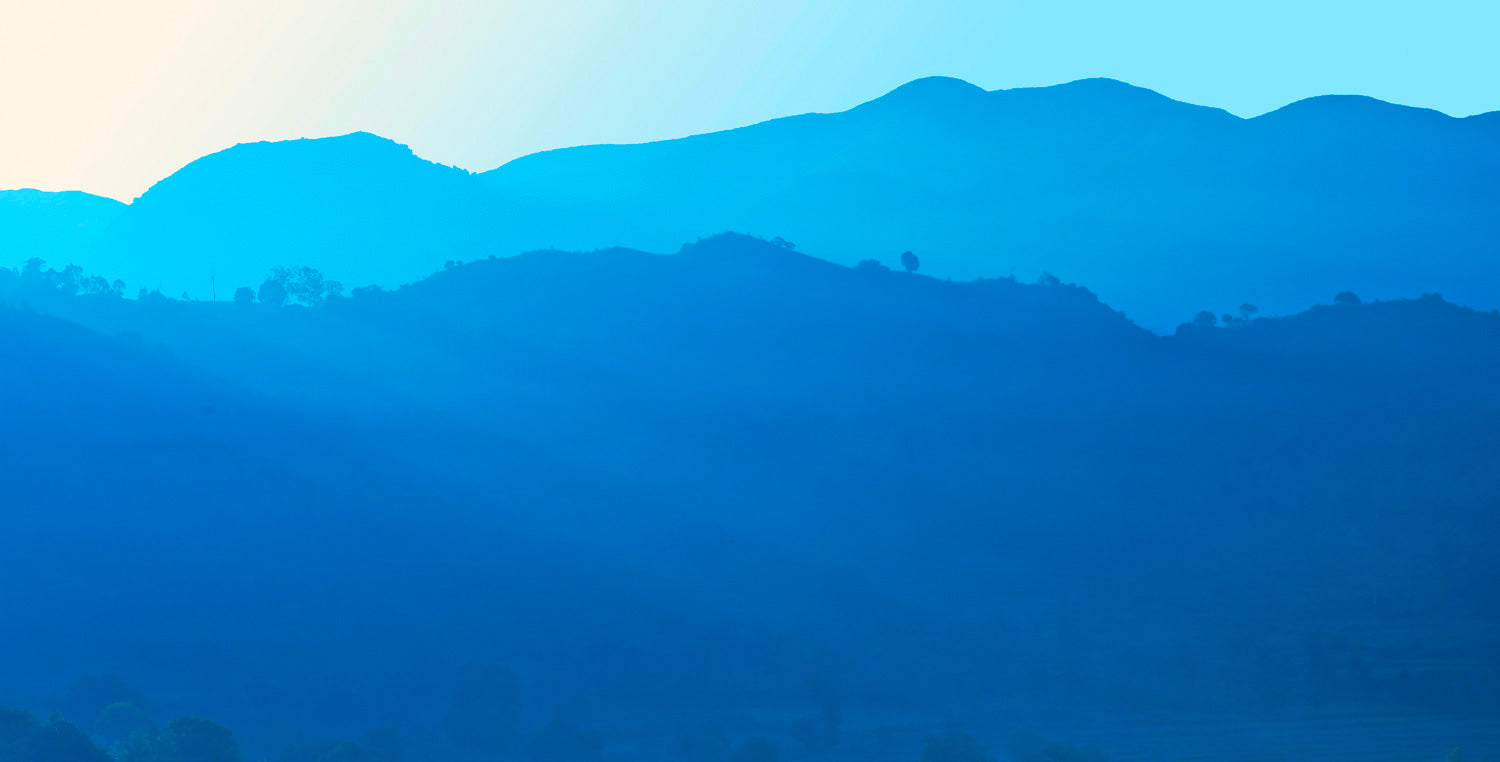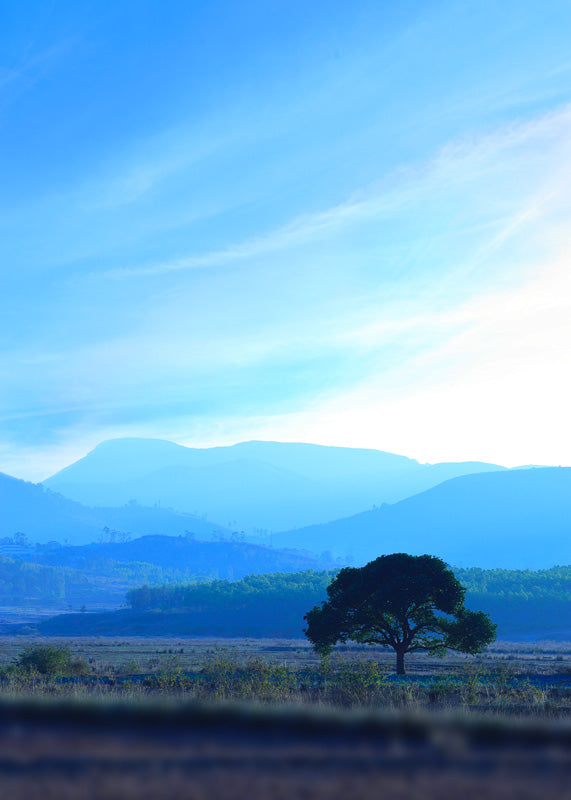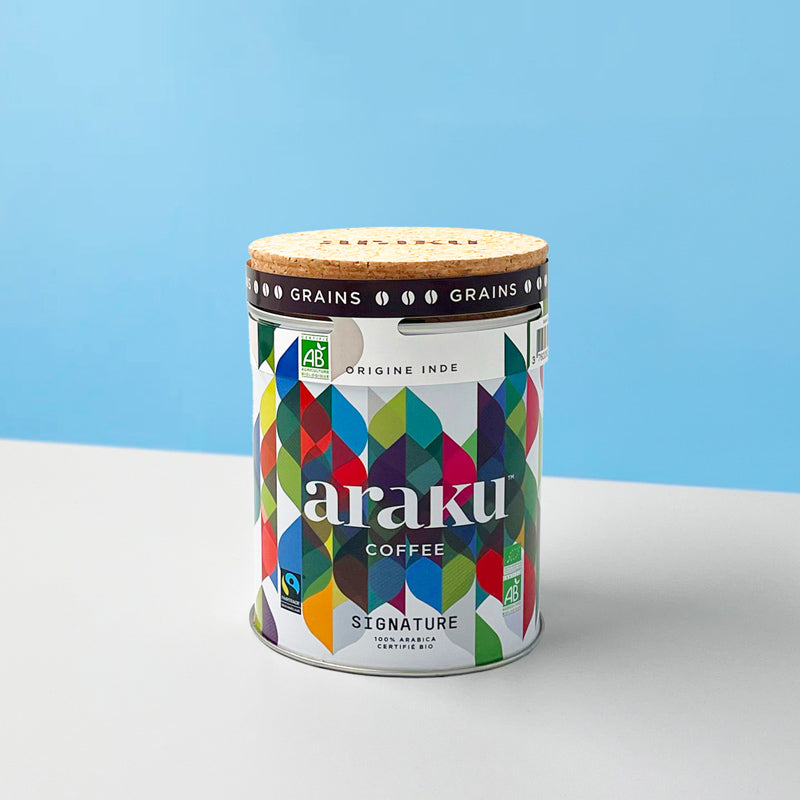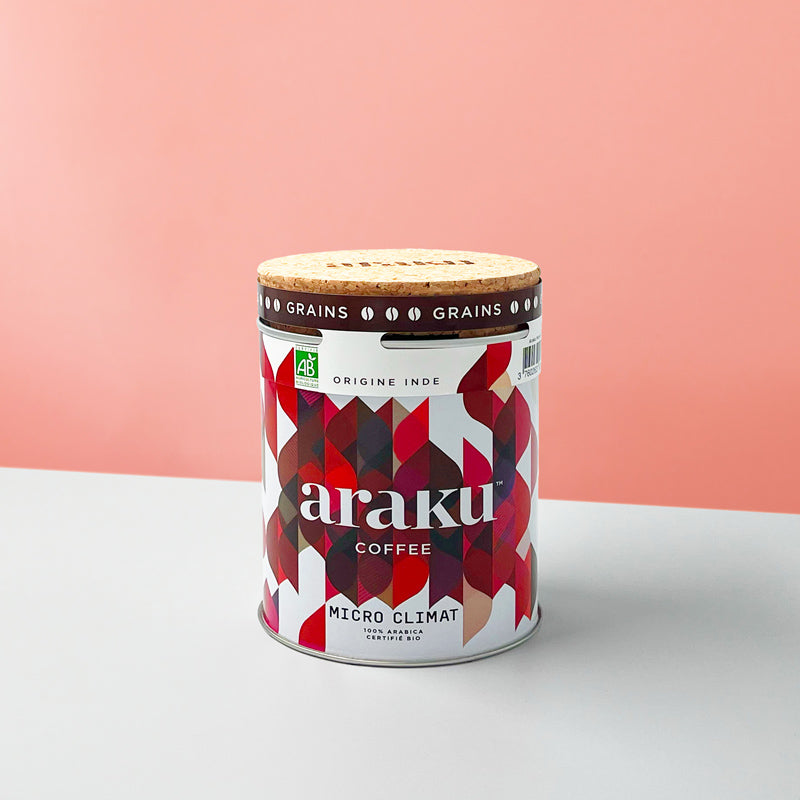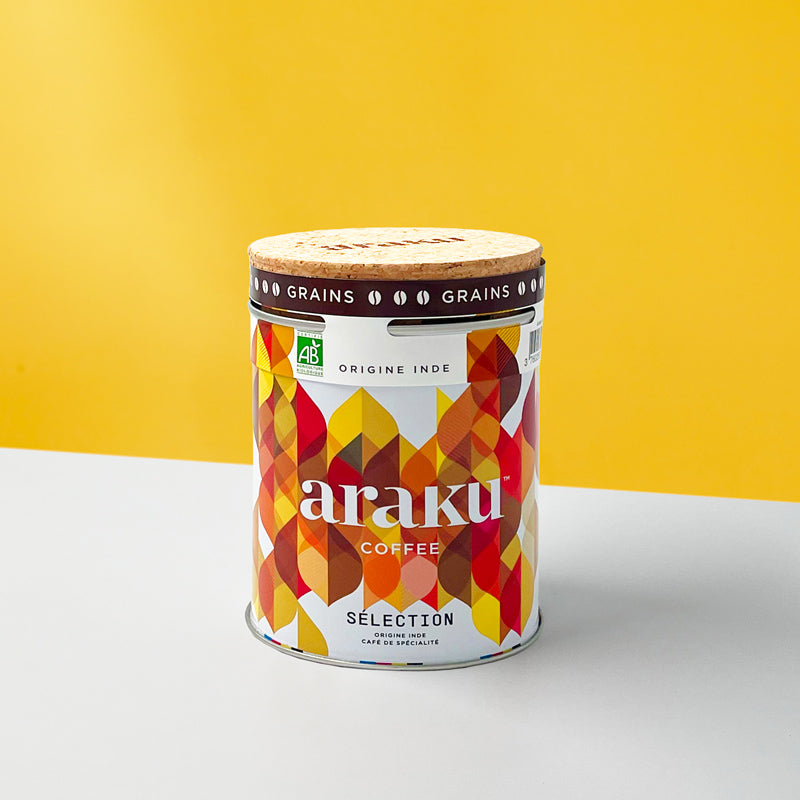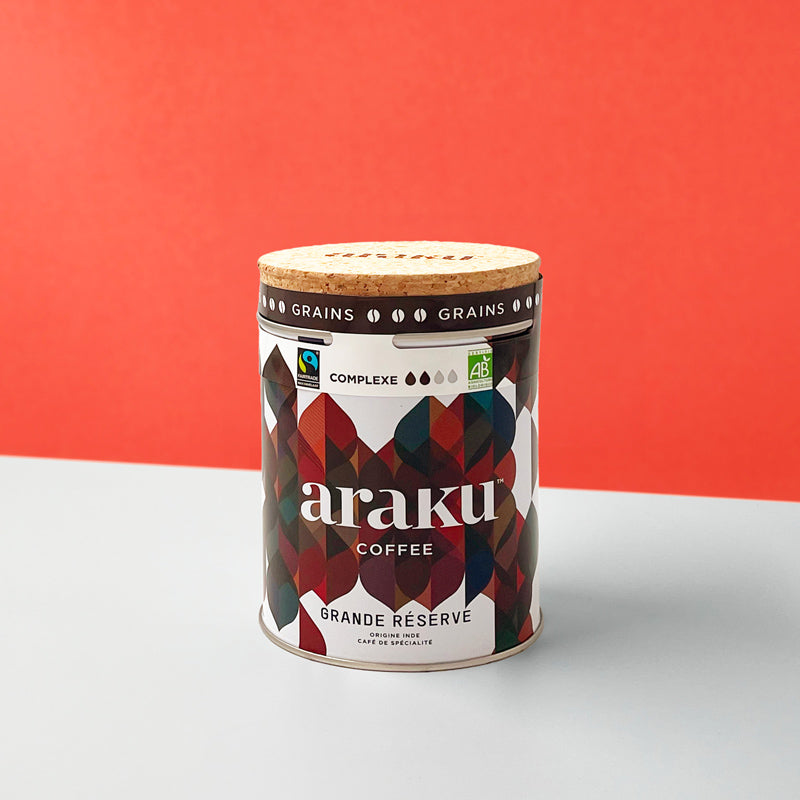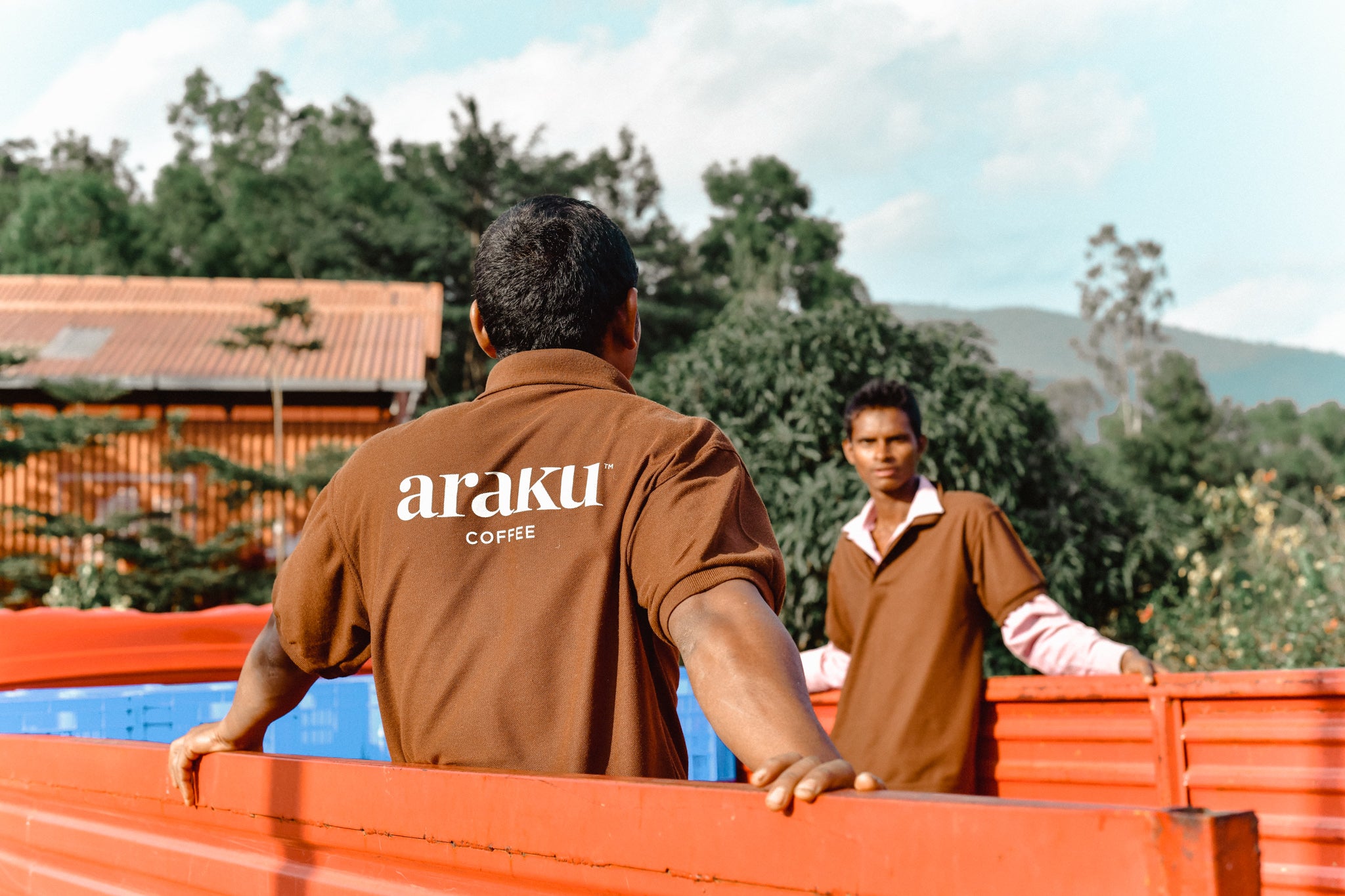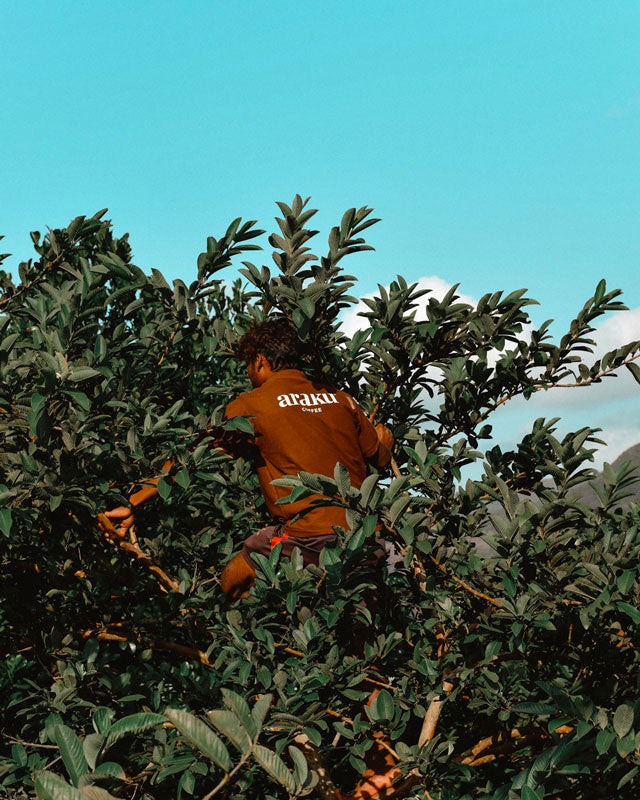
Our history
At Araku, you don't just buy coffee, you also participate in an agricultural, economic and social revolution. Here is the story
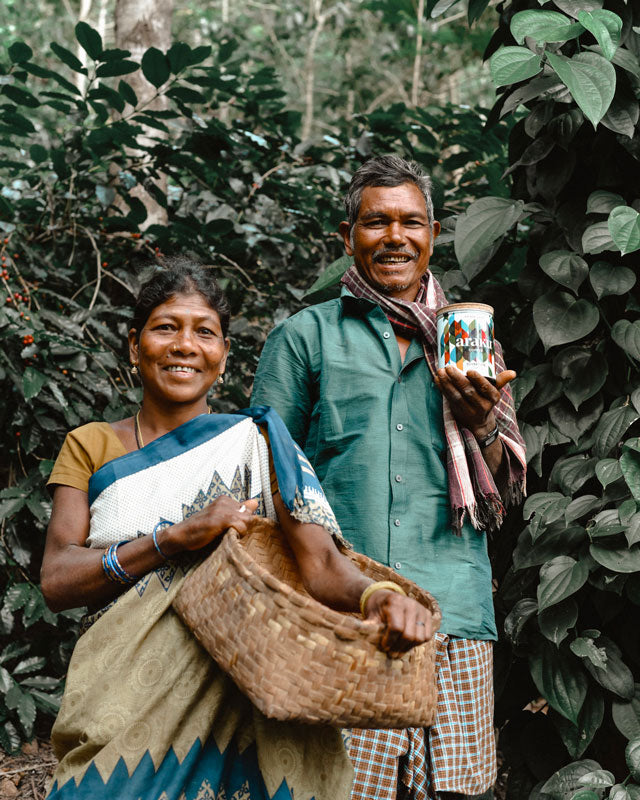
1999: meeting the Adivasis
The history of Indian Araku coffee is deeply linked to the local communities of the Eastern Ghats, the Araku highlands, in Andhra Pradesh. It dates back to 1999 when the infant mortality rate was still very high and the schooling of girls was very low. The Naandi foundation then arrived in the Araku valley with a social and public health project. The teams meet the Adivasis community, the indigenous tribal communities of the Indian subcontinent. And work first to make education accessible to young girls. As we need to find ways to increase farmers' income so that they can send their children to school, the Naandi Foundation teams are studying the region's agricultural potential. The Adivasis mainly practiced subsistence agriculture, mainly cereals, but had almost entirely abandoned the cultivation of coffee, which had been present in Araku since 1920. For them, it was up to Nature to take care of the trees. We had to convey the idea that humans also had the right to take care of trees. And that this land, once in the hands of the English, could be theirs again. We have given power back to the Adivasis and their land.

2001: the revival of coffee plantations
At the request of farmers, we are expanding our support to agriculture. We are planting 1 million coffee trees in the valley while starting to introduce farmers to biodynamics and the cultivation of organic Arabica coffee. From the beginning, our Indian coffee is exclusively grown and harvested by hand, in micro-plots of less than one hectare each.
The plots of 40 pilot villages are then listed one by one, measured, analyzed (sunshine, shade, soil, etc.) and of course, tasted. 6 different terroirs are quickly emerging. This is how our six organic Arabica coffees, each roasted differently to reveal their own aromas, were born.
In 2011, Naandi and the Livelihoods Carbon compensation fund financed the planting of 6 million trees: in just 5 years, nearly 25,000 farmers were mobilized to plant 6 million trees, including 3 million coffee trees.

2007: 10,000 farmers united in 1 cooperative
The creation of a cooperative bringing together our 10,000 farmers was a major step in establishing mutual trust between Naandi and the communities.
Until then, farmers sold their produce on the local market, making them dependent on prices set by middlemen and lenders who charged exorbitant interest rates. Since 2007, the cooperative has played a triple role: it pays farmers from the harvest at a price well above that of the world market, it ensures for them the entire process of transforming coffee cherries into green coffee and it is in charge of the marketing of all production on the world market.
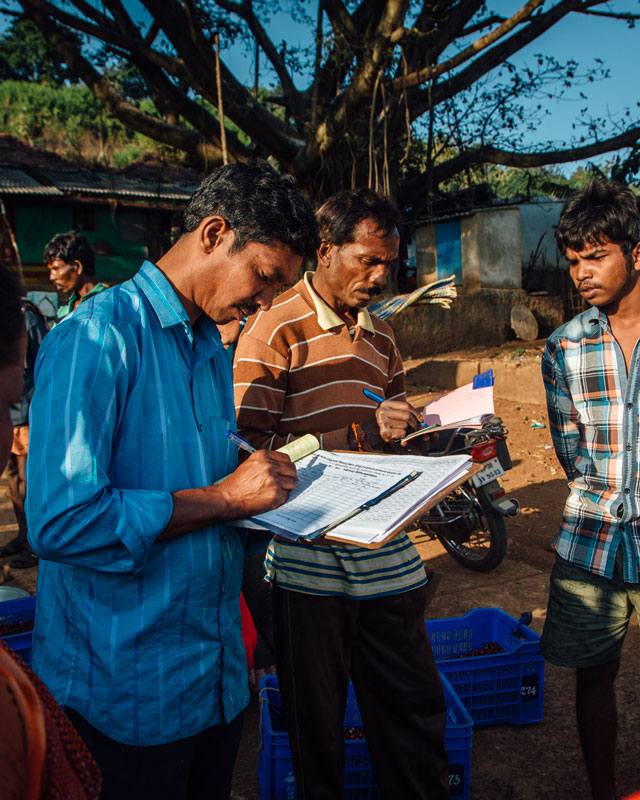
2016: establishing a direct commerce model
Initially, most of our Indian coffee production is sold to roasters around the world. Then the cooperative decided in 2015 to launch its own brand in order to bypass any intermediary. Araku Indian coffee was born. In January 2017, an Araku organic coffee shop opened in Paris, rue de Bretagne. And in March 2021, Araku Café was inaugurated in Bangalore, India. And many future openings are planned, in Europe and in India.
Several million coffee trees are now planted in the valley, producing more than 100 tonnes of Arabica coffee beans each year, half of which are sold directly under the Araku brand, in France and India. More than 12,000 farmers, each owner of their own small plot, work on our specialty coffee. A true engine of social development in the valley, Araku has enabled, in 20 years, the improvement of income and living conditions of farmers in this protected nature reserve, but also the parallel development of educational and medical infrastructures.
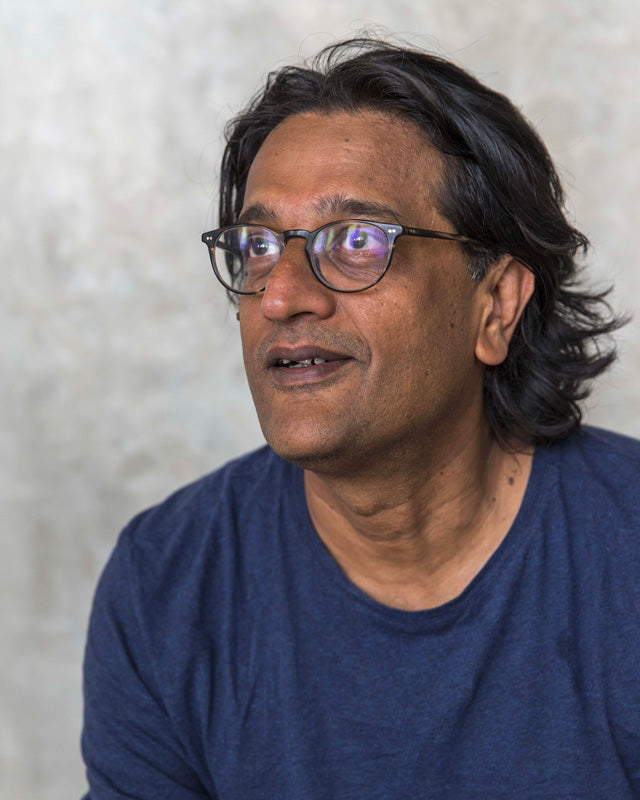
Three questions for Manoj Kumar, director of the Naandi Foundation
Former banker turned activist, originally from the state of Kerala in southern India, Manoj Kumar is the Managing Director of the Naandi Foundation, which means “new beginning” in Sanskrit. Based in Hyderabad, the foundation has two main missions: educational and professional support for Indian girls and women so that they can benefit from the same opportunities as men and soil regeneration to revolutionize large-scale Indian agriculture towards a regenerative agriculture, concerned with the profit of farmers, the quality of food and the regeneration of ecosystems. Araku has been at the confluence of these two missions for 20 years.
How did the Araku adventure begin?
When we arrived in Araku in 1999, the valley was far from everything, in extreme poverty, marginalized from the rest of India, we had the project of building schools for the local populations. We gradually established links with the inhabitants of the valley. The farmers told us about their living conditions and their hopes. Many of them owned an acre of land given by the State but their land was infertile because they lacked the skills necessary to make it profitable. The coffee culture, although ancient in the valley, had almost disappeared. More than 100 species of trees and plants had also disappeared in just a few decades. We then asked ourselves: how can we allow these farmers to regain their dignity and autonomy, without depending on anyone? How can we help them regain the fertility of their soil? This is how we came up with the idea of offering them support so that they could relaunch coffee production in the Araku valley themselves. We have put everything in place to support them so that they become experts.
What was your action plan?
First, of course, we had to gain the trust of the community, and convince them that we shared their wish to be guardians of their forest and nature. Then, our first step was to give farmers back power over their land by training them in biodynamic agriculture and coffee growing. Secondly, we explained to them the advantage they would have in joining together in a cooperative to produce and sell coffee. At the beginning, there were 1000 of them to follow us. Today, there are more than 10,000 and Araku is the largest biodynamic coffee cooperative in the world.
Have you observed a change in life in the valley since the cooperative existed?
The resources now offered by coffee production have enabled the inhabitants of Araku to develop educational and medical infrastructures, and to have access to better sources of food and drinking water. What coffee offered them was true social transformation. The inhabitants of Araku have now emerged from poverty and regained their full autonomy. The valley has become a model that inspires regions around the world. We can testify to this: if the miracle took place in Araku, it can happen again anywhere.
Our organic coffee ranges
Exceptional Coffees
ARAKU exceptional coffees embody excellence, they are distinguished by incomparable quality and remarkable sensory characteristics.
Specialty Coffees
Specialty coffees typically score above 80 out of 100, and ARAKU coffee consistently scores above 90.
Pure Arabica coffees
ARAKU specialty coffees are made exclusively from beans of the Arabica variety, recognized as the most popular and appreciated worldwide.
Fair Trade Coffees
ARAKU specialty coffees are fair trade and follow ethical trading standards that ensure fair and dignified working conditions for producers.
Indian Cafes
ARAKU Indian coffees come from a valley in India. India boasts a thriving specialty coffee culture that makes it one of the best in the world.
Grand Cru Coffees
Grand Cru coffees are exceptional coffees. They are carefully selected from specific regions, renowned for their specialty coffee culture.
Organic Coffee
Organic coffees are grown using agricultural practices that preserve the environment and exclude the use of pesticides and chemical fertilizers.



